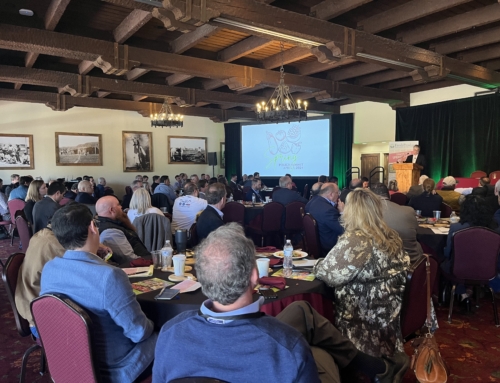Facts about the Cantaloupe Recall
The U.S., Canada, and Mexico have been working closely on a recent outbreak and recall associated with cantaloupes. This close coordination to help limit the impact as much as possible ensures that impacted products are removed from the marketplace to protect public health.
The product was first recalled on Nov. 3 and shipments from the impacted supplier were halted. Recent recalls are of product that was already in the supply chain. As health officials continue their investigation of this issue, additional information is updated on their website both here and here.
Anytime any food is recalled, it is serious, and officials should be applauded for acting on facts to quickly stop the distribution of contaminated food and identify sources of contamination. This scalpel approach reduces the impact on public health and focuses resources where there is the greatest need. Daily regulations, monitoring, and enforcement never stop. Here are a few examples:
Growers in Mexico are an important part of the produce supply and must meet all U.S. and Canadian food safety requirements. All shipments arriving to the U.S. are subject to FDA and USDA inspection.
U.S. importers conduct verification and certification steps on their foreign suppliers under the FDA’s Foreign Supplier Verification Program to ensure that imported produce is grown and packed following the same food safety requirements as produce grown the U.S. This means importers have extensive knowledge of the steps their suppliers take in adhering to all U.S. food safety laws.
The FDA also conducts on-site inspections of U.S. importing companies to check the verification processes for foreign suppliers, plus on-site inspections of many Mexican farms. Health officials also conduct routine sampling of both domestic and imported produce across the supply chain as an additional layer in food safety efforts.
Cantaloupe growers from Mexico must meet additional food safety requirements as established by the FDA and Mexico’s National Service for Health, Food Safety, and Agri-food Quality (SENASICA) through a joint program between the two countries. All exporting cantaloupe farms must be approved by the FDA to export to the U.S. This program has been in place for more than 20 years and contributes to the safety of cantaloupes in the market. More recently, in September 2020, the FDA-SENASICA-COFEPRIS Food Safety Partnership was created between the US and Mexico to protect public health by using modern approaches and preventive practices based on technical and scientific evidence, health surveillance, and verification measures.
About FPAA:
Founded in 1944 in Nogales, Arizona, the Fresh Produce Association of the Americas has grown to become one of the most influential agricultural groups in the United States. Today, the FPAA provides a powerful voice for improvement and sustainability by serving the needs of more than 100 North American companies involved in the growth, harvest, marketing, import, and distribution of produce. For more information, visit www.freshfrommexico.com.





